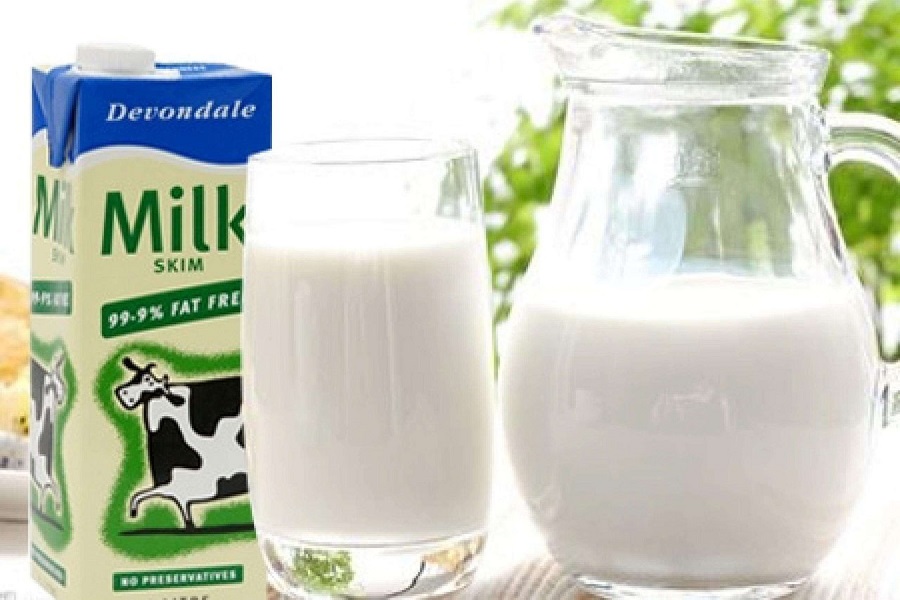After an intense workout, your body needs replenishment to aid in recovery and optimize the benefits of your exercise routine. One crucial aspect of post-workout recovery is hydration, as exercise leads to fluid loss through sweat. Additionally, providing your body with the right nutrients can support muscle repair, replenish energy stores, and enhance overall recovery. In this article, we will discuss the importance of post-workout hydration and nutrition and explore some excellent drink options to help you recover effectively.
Hydration: Replenishing Fluids Lost During Exercise
During exercise, especially intense or prolonged workouts, your body loses water through sweat. This fluid loss can lead to dehydration if not adequately addressed after your workout. Dehydration can negatively impact performance, energy levels, and recovery.
To rehydrate effectively, it’s recommended to drink fluids that contain a combination of water, electrolytes, and carbohydrates. Electrolytes such as sodium, potassium, magnesium, and calcium are essential for fluid balance and muscle function. Carbohydrates provide energy to replenish glycogen stores that get depleted during exercise.
Water is a fundamental choice for hydration, as it helps restore fluid balance. If your workout was shorter in duration or less intense, plain water may be sufficient to restore hydration levels. However, for more intense or prolonged workouts, other drink options that contain electrolytes and carbohydrates can be beneficial.
Sports Drinks: Replenishing Electrolytes and Carbohydrates
Sports drinks are formulated to provide both hydration and replenishment of electrolytes and carbohydrates. They are particularly useful for high-intensity workouts lasting longer than an hour or in hot and humid conditions.
Sports drinks typically contain electrolytes like sodium, potassium, and magnesium, along with carbohydrates in the form of sugars. These ingredients aid in restoring fluid balance, replenishing electrolytes lost through sweat, and providing an energy source to aid in recovery.
It’s important to note that sports drinks can be high in sugar and calories, so they may not be necessary for shorter or less intense workouts. However, for individuals engaging in prolonged, vigorous exercise, sports drinks can be a valuable option to support hydration and provide essential nutrients.
Protein Shakes: Supporting Muscle Repair and Growth
In addition to hydration, post-workout nutrition plays a crucial role in muscle repair and growth. Protein is particularly important, as it provides the building blocks (amino acids) required for muscle recovery and synthesis.
Protein shakes are a popular choice for post-workout nutrition due to their convenience and ability to deliver high-quality protein quickly. Whey protein, derived from milk, is one of the most commonly used proteins in shakes due to its excellent amino acid profile and rapid digestion.
Consuming a protein shake after your workout can enhance muscle protein synthesis, reduce muscle damage, and promote recovery. It is recommended to consume protein within 30 minutes to an hour after your workout for optimal results. Pairing protein with carbohydrates in your shake can further enhance glycogen replenishment.
Some individuals may prefer plant-based protein shakes made from sources like pea, soy, hemp, or rice protein. These options can be suitable alternatives for those following a vegan or vegetarian diet or who have dairy allergies or intolerances. Plant-based protein shakes can still provide the necessary amino acids for muscle recovery and growth.
Chocolate Milk: A Natural Combination of Carbohydrates and Protein
Chocolate milk has gained attention as a post-workout beverage due to its natural combination of carbohydrates and protein. It contains both whey and casein proteins found in milk, offering a blend of fast-acting and slow-release proteins. The carbohydrates from the chocolate flavoring provide a quick source of energy to replenish glycogen stores.
Research suggests that chocolate milk can be an effective post-workout beverage, promoting muscle recovery and glycogen replenishment. It provides a balanced ratio of carbohydrates to protein, making it an appealing option for many athletes and fitness enthusiasts.
Coconut Water: A Natural Electrolyte Source
For individuals looking for a natural alternative to sports drinks, coconut water can be an excellent choice. Coconut water is a clear liquid found inside young coconuts and is naturally rich in electrolytes such as potassium, sodium, magnesium, and calcium.
Coconut water can help replenish electrolytes lost during exercise and support hydration. However, it’s important to note that coconut water may not provide sufficient carbohydrates for prolonged or high-intensity workouts. In these cases, pairing coconut water with a carbohydrate source like a banana or consuming it alongside a protein-rich snack can help meet your post-workout nutritional needs.
Conclusion
After working out, proper hydration and nutrition are vital for optimal recovery and performance. Replenishing fluids lost during exercise is crucial, and water is a fundamental choice for most individuals. However, for intense or prolonged workouts, sports drinks can provide the necessary electrolytes and carbohydrates to support hydration and energy replenishment.
Related topics:


